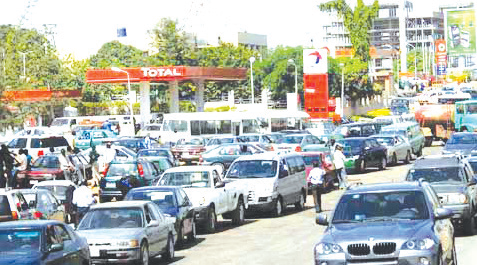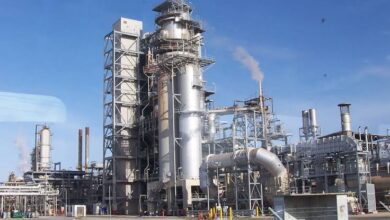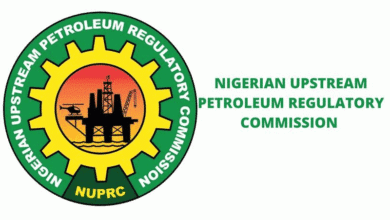
The oil and gas industry in Nigeria is currently facing twin challenges of fuel scarcity and declined daily crude oil and gas production.
Despite having about 37.50 Billion Barrels of proven crude oil reserves, and 209.26 Trillion cubic feet (TCF) of gas reserves, the country is confronted with declined daily crude oil production and perennial fuel scarcity.
Presently, the nation’s daily production has dropped to approximately 1.3 million barrels of oil and 8.5 bcf of gas-way below the nation’s capacity and by all globally acceptable standards.
Prior to this sorry state, the nation was producing about 1.7million bpd with condensate, with the target to ramp up production at 2million bpd.
The Minister of State Petroleum Resources (Oil), Heineken Lokpobiri stated in several occasions that the Mandate given to him by President Bola Tinubu after his appointment was to increase crude oil production.
This was to meet the projected 1.78 million bpd in the 2024 budget of N28.7trillion. However, since the beginning of this year, the nation’s oil production has been hovering between 1.2million bpd and 1.4million bpd.
For instance, the nation’s crude oil production dropped marginally to 1.42 million bpd in January, 2024 from the 1.422 million bpd recorded in December 2023.
In February, 2024, the country’s production dropped by 104,000 barrels per day to 1,32million bpd from the 1,42million bpd recorded in the month of January, 2024.
In March, 2024, Nigeria’s crude oil production dropped by 7% to 1.23 million bpd from 1.32mbpd in February, 2024.
In April, 2024, production rose four percent to 1.28 million barrels per day compared to 1.23mbpd recorded in March.
In May, 2024, Nigeria’s crude oil production declined to 1.25 million bpd from the 1.28 million bpd recorded in April.
In June, 2024, production rose to 1.3million bpd from the 1.25million bpd recorded in May, which is far below the target of 1.7million bpd.
At the recently concluded 2024 Oil and Gas (NOG) Energy Week in Abuja, the Independent Petroleum Producers Group (IPPG) and other stakeholders called for an urgent action to address the dwindling production levels and under-investment in the sector.
Particularly, the Chairman of IPPG, Abdulrazaq Isa, noted that the reserve to production ratio was extremely low and a clear indicator that the industry is in a dire situation posing a risk to the implementation of the national budget and domestic refining capacity.
The Oil Producers Chairman noted that it was against this frightening backdrop that the IPPG is calling for urgent measures to be undertaken by all relevant stakeholders to immediately arrest this development stressing that “as a matter of national importance, Nigeria must act fast and hasten the pace of recovery across the entire industry”.
Outlining the priority areas, Isa stated that the IPPG is calling for the swift approval of pending IOC divestment transactions.
“IPPG strongly advocates that our member companies – Seplat, the Renaissance Consortium and Oando – have the proven track record to successfully take over and manage these onshore and shallow water assets to realise incremental production in the region of 100,000 – 200,000 barrels of oil and over 1.5bcf of gas per day within 24 months and well over 500,000 barrels of oil per day in the long term”.
The second priority area is the Deepwater Development. According to IPPG, addressing issues around deepwater development and competitive fiscal regimes with major oil companies could unlock 700,000 barrels of oil per day, significantly boosting production and economic benefits.
The adoption of a National Value-Retention Strategy is another priority area capable of ensuring that domestic crude oil and gas production sustains Nigeria’s refining and petrochemical demand and ultimately transforming Nigeria into a net exporter of refined petroleum and petrochemical products thereby generating additional foreign exchange and rapid industrialisation of the nation’s economy. It is therefore imperative to grow daily production to 2.5mbpd of oil and 10 bcf of gas in the near to long term.
The final priority area listed by the Group is the acceleration of Nigeria’s Gas Resource Development. IPPG stated that exploiting Nigeria’s vast gas resources with a focus on restoring and expanding LNG production and enhancing domestic gas utilization is essential and this includes addressing the gas infrastructure deficit and leveraging International Oil Companies for export gas and IPPG members for domestic gas agenda, with NNPCL leading the charge.
Isa noted these priority areas provided the most realistic and sustainable pathway towards meeting our national long term production aspiration of 4 million barrels of oil per day and 13 billion cubic feet of gas per day.
Reiterating IPPG’s support for government policies, Isa emphasized the need for urgent action, even suggesting the declaration of a state of emergency in the sector, and collaboration between the industry regulators (NUPRC and NMDPRA) and industry operators (NNPCL, OPTS and IPPG) to unlock the industry’s full potential and achieve national production aspirations.
In a swift reaction, Lokpobiri blamed the development on lack of drilling investments in the sector, disclosing that efforts are ongoing to change the narrative by attracting more investments into the sector.
“We have been working hard to ramp up production. The overall objective is to increase production. It is when we ramp up production that we will be able to get the requisite forex inflow into the country, get money to fund our budget, and satisfy energy demand. But you can only increase production by way of increasing investments”, the Minister said.
Also speaking, the Minister of State, Petroleum Resources (Gas), RT. Hon. Ekperikpe Ekpo said, investment is the lifeblood of the oil and gas sector.
He said, the Ministry has been instrumental in implementing reforms that make Nigeria an attractive destination for both local and international investors.
Hon. Ekperikpe maintained that the Petroleum Industry Act (PIA) 2021 and the recent Presidential Directive for Oil and Gas Companies on Tax Incentives, Exemption, Remission, etc. by President Bola Tinubu, have created a conducive environment for investment.
According to him, these reforms ensure transparency, accountability, and regulatory certainty, making Nigeria an attractive destination for investors.
“The regulatory frameworks now in place incentivize investment, streamline bureaucratic processes, and provide clarity on fiscal terms”, he noted.
Meanwhile, the country is currently grappling with fuel scarcity that is almost crippling the economy. This is due to disruptions of the fuel distribution chain by the recent flooding on the trucking route, and unavoidable logistical challenges.
Average price of petrol has increased to N1,100 per/litre, while the black marketers are making brisk businesses, as they sell between N1,400 and N1,500 per/litre.
Although, the government has pledged commitment to restoring normalcy to the fuel supply hitches in parts of the country and Federal Capital Territory (FCT), Abuja.






